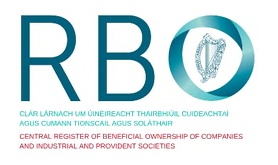
by John McCarthy Consulting Ltd. | Jun 25, 2024 | Blog, News
A 2022 article warning private schools and universities that appeared on the law firm website Withersworldwide is worth noting. It warns private schools and universities that they are at particular risk of receiving the proceeds of bribery and corruption and legitimising them. These warnings also extend to the possibility of financing terrorism.
Anyone in a senior management position and, in particular, responsible for the financial side of a private school or university should ask themselves the following (non-exhaustive list of) ‘red flag’ questions about a payment:
- Is the payer native to, or resident in, a high-risk country?
- Are the funds coming from a foreign bank account?
- Is the payer a Politically Exposed Person (see Section 37 (10) of the Criminal Justice (Money Laundering & Terrorist Financing) Acts 2010 to 2021), subject to sanctions or designated as (or associated with) a proscribed organisation?
- Are the funds part of a complex or illogical arrangement, such that it is unclear who is making the payment, e.g. from an offshore company?
- Has the payer taken steps to conceal their identity? Has anyone in the organisation ever met the payer in person?
- Are the payer’s assets inconsistent with their known legitimate income?
- Is the payment made up of a disproportionate amount of private funding, bearer’s cheques or cash?
- Are significant amounts being offered (unnecessarily) in advance or is the school or university being put under pressure to complete the transaction quickly without good justification?
- Is any of the information provided by the payer suspicious (e.g. falsified) or has information been withheld?
- Is a refund being requested for an overpayment (and if so, to different accounts)?
Sometimes the answers to these questions will be perfectly reasonable and innocent. Remain on the alert to the potential ML and terrorism risks where the source of funds is unclear or concerning, especially where a payment would tick more than one of the boxes listed above.
For more on AML please see our Anti-Money Laundering Policies Controls and Procedures Manual on our website. — View the table of contents here.
Please go to our website to see our:
- Anti-Money Laundering Policies Controls and Procedures Manual (March 2022) — View the table of contents
- AML Webinar (December 2023) available here, which accompanies the AML Manual. It explains the latest legal AML reporting position for accountancy firms and includes a quiz. Upon completion you receive a CPD certificate for attendance in your inbox.
- Letters of engagement and similar templates—Please visit our website here where immediate downloads are available in Word format. A bulk discount is available for orders of five or more items bought together.
- ISQM TOOLKIT, or if you prefer to chat through the different audit risks and potential appropriate responses presented by this new standard, please contact John McCarthy FCA by email at john@jmcc.ie.
- We typically tailor ISQM training and brainstorming sessions to suit your firm’s unique requirements. The ISQM TOOLKIT 2022 is available to purchase here.

by John McCarthy Consulting Ltd. | Jun 18, 2024 | Blog, News
Following on from last week’s blog on cold file reviews and ISQM 1, this week we look at the various factors that can cause changes to the monitoring and remediation elements of ISQM 1.
The following variables are usually areas that need updated:
- The quality objectives set out in the system of quality management (SoQM);
- The quality risks of their assessments; and
- The responses to those risks.
Changes in these areas are mainly a result of:
- Changes in the nature and circumstances of the firm and its engagements; and
- Remedial actions to address deficiencies in the system of quality management.
These changes can arise in a variety of ways, such as:
- Changes to quality objectives;
- A need for new additional quality objectives g. if the firm opens a new office, merges with another firm or starts providing a new service;
- Additional quality objectives established by the firm may no longer be needed, or may need to be modified; and
- Root cause analysis (RCA) may identify that previous attempts at fixing issues from past cold file reviews are no longer be needed, need to be modified, or require a new solution.
Remember that the Specified Responses prescribed by the standard (detailed here in paragraph 34) must not be modified or removed, unless one or more of them is no longer relevant to the firm. The firm may decide that it’s appropriate to modify how these Specified Responses are designed and implemented.
The types of changes that can be triggered by the cold file review process broadly fall into two categories:
- Changes to quality risks such as:
- New quality risks are identified;
- Existing quality risks no longer qualify as quality risks;
- Existing quality risks need to be modified; and
- Existing quality risks need to be reassessed.
- Changes to responses to quality risks such as:
- New responses may be designed and put into action;
- Existing responses may be discontinued and deemed no longer appropriate; and
- Existing responses may need to be adjusted for changes in circumstances such as a new audit programme.
For more on the whole ISQM process please see our ISQM 1 Toolkit on our website here.
Please go to our website to see our:
- Anti-Money Laundering Policies Controls and Procedures Manual (March 2022) — View the table of contents
- AML Webinar (December 2023) available here, which accompanies the AML Manual. It explains the latest legal AML reporting position for accountancy firms and includes a quiz. Upon completion you receive a CPD certificate for attendance in your inbox.
- Letters of engagement and similar templates—Please visit our website here where immediate downloads are available in Word format. A bulk discount is available for orders of five or more items bought together.
- ISQM TOOLKIT, or if you prefer to chat through the different audit risks and potential appropriate responses presented by this new standard, please contact John McCarthy FCA by email at john@jmcc.ie.
- We typically tailor ISQM training and brainstorming sessions to suit your firm’s unique requirements. The ISQM TOOLKIT 2022 is available to purchase here.

by John McCarthy Consulting Ltd. | Jun 10, 2024 | Blog, News
Are cold file reviews necessary? A good question you might say.
One of the main characteristics of ISQM (Ireland) 1 (hereafter ISQM 1) (ISQM1 Updated Oct 2023) is that the standard is iterative, and so it is implemented is by carrying out audits of cold file and hot file reviews. Ideally these reviews are carried out by someone experienced and unconnected with the audit assignment so that the results are fully objective and up to date.
One objective of the reviews is to identify issues that may require amendment in the ISQM so that it is a constantly evolving document.
Per ISQM 1 requirements, the monitoring process must provide a basis for identifying deficiencies in the system of quality management such that prompt remedial action can be taken, and the deficiencies can be communicated to the audit teams without delay.
ISQM 1:38 requires the monitoring process to include the inspection of completed audits (cold file reviews). The cold file reviews must include at least one completed audit from each Responsible Individual on ‘a cyclical basis determined by the firm’.
Bear in mind that the monitoring process does not only involve carrying out cold file reviews. The system of quality management must be generally monitored to achieve the objectives of ISQM 1. These objectives are set out in the question: “What is the purpose of the monitoring and remediation element of ISQM 1?”
For more on the whole ISQM process please see our ISQM 1 Toolkit on our website here.
Please go to our website to see our:
- Anti-Money Laundering Policies Controls and Procedures Manual (March 2022) — View the table of contents
- AML Webinar (December 2023) available here, which accompanies the AML Manual. It explains the latest legal AML reporting position for accountancy firms and includes a quiz. Upon completion you receive a CPD certificate for attendance in your inbox.
- Letters of engagement and similar templates—Please visit our website here where immediate downloads are available in Word format. A bulk discount is available for orders of five or more items bought together.
- ISQM TOOLKIT, or if you prefer to chat through the different audit risks and potential appropriate responses presented by this new standard, please contact John McCarthy FCA by email at john@jmcc.ie.
- We typically tailor ISQM training and brainstorming sessions to suit your firm’s unique requirements. The ISQM TOOLKIT 2022 is available to purchase here.

by John McCarthy Consulting Ltd. | Mar 10, 2023 | News
As part of the new ISQM 1 audit quality management standard, there has been much commentary about a new procedure called Root Cause Analysis or RCA.
Root cause analysis is now a compulsory requirement of audit quality control under paragraph 41 of the ISQM. It focuses on understanding the underlying cause behind the deficiencies identified on audit files and in audit quality processes to help provide valuable insights to the firm and help with remedial action.
It’s not practical to apply RCA to every deficiency. Firms will need to design a way of appropriately targeting RCA at the most appropriate reviews and findings.
The selection of deficiencies on which to focus RCA will involve taking the following factors into account:
- The quantum/frequency of the audit risk and/or whether the audit is high profile;
- The reviews it could be applied to, cold file reviews, engagement quality reviews and/or external monitoring reviews;
- The possible selection of all low scoring/graded files, in cold file reviews; and
- Whether the findings in question are recurring themes.
Please go to our website to see our new ISQM TOOLKIT or if you prefer to chat through the different audit risks and potential appropriate responses presented by this new standard, please contact John McCarthy FCA by e-mail at john@jmcc.ie.
We typically tailor training and brainstorming sessions to suit your firm’s unique requirements.
Publications and AML webinars:
- The ISQM TOOLKIT 2022 is available to purchase here.
- See our latest Anti-Money Laundering Policies Controls & Procedures Manual (March 2022) – View the Table of Contents click here.
- Also we have an updated AML webinar (March 2022) available here, which accompanies the AML Manual. It explains the current legal AML reporting position for accountancy firms and includes a quiz. Upon completion, you receive a CPD Certificate of attendance in your inbox.
- To ensure your letters of engagement and similar templates are up to date visit our site here where immediate downloads are available in Word format. A bulk discount is available for orders of five or more items if bought together.

by John McCarthy Consulting Ltd. | Dec 19, 2022 | Blog, News
As many are already aware, access to the RBO Register has recently been shut down, following an EU Court of Justice ruling.
Access to the Register of Beneficial ownership registry is only now being reopened to registered designated persons, which includes accountants in practice.
In order to gain access to the Register from now on, Designated Persons will need to appoint an authorised administrator register themselves, using a Form BEN3A1 Designated Persons Administration Declaration form (fillable online).
We suggest readers monitor the home page of the RBO for more information which will appear there as soon as it becomes available.
Meanwhile, for those of you still in the process of ISQM 1 implementation, please see our new ISQM TOOLKIT or if you prefer to chat through the different audit risks and potential appropriate responses presented by this new standard, please call or e-mail John McCarthy FCA or e-mail him at john@jmcc.ie.
We typically tailor training and brainstorming sessions to suit your firm’s unique requirements.
Publications and AML webinar
To ensure your letters of engagement and similar templates are up to date visit our site here where immediate downloads are available in Word format. A bulk discount is available for orders of five or more items if bought together.










